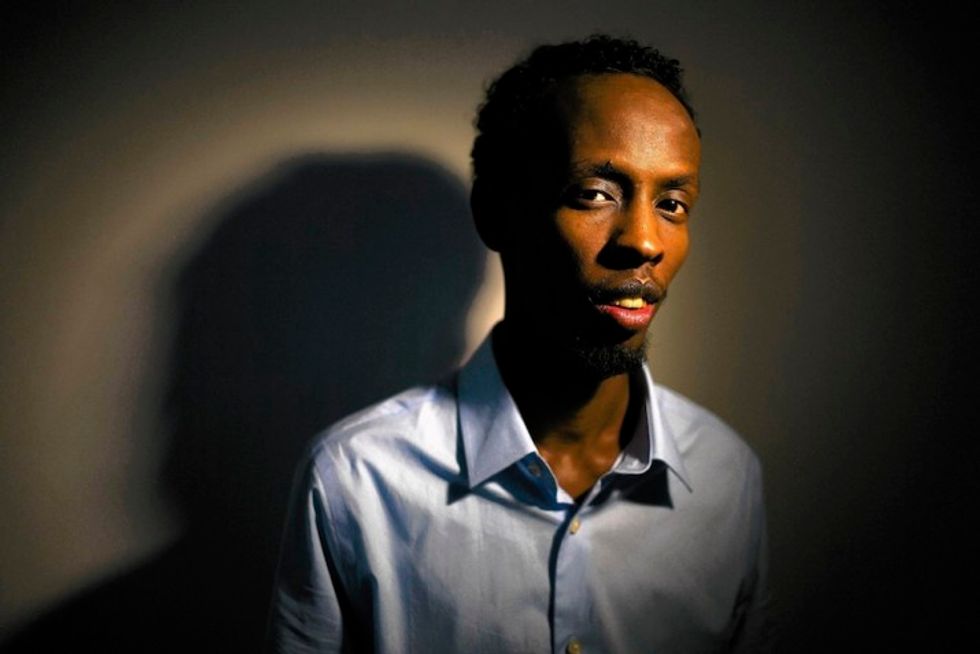Captain Scrooge: Oscar Nominee Barkhad Abdi Tells His Rags to Not Quite Riches Story
Oscar nominee Barkhad Abdi tells his rags to not quite riches story in the New Yorker.

If there was any semblance of multi-dimensional storytelling (shades of grayness) to the Hollywood-ized account that pitted Tom Hanks and Navy SEALs against teenage Somali pirates, it came from a breakout performance from Barkhad Abdi. As cringeworthy as Captain Phillips was to watch (Paul Greengrass' "true story" serum had audiences knowing who to root for/against from the very moment America's sweetheart appeared on screen), the first time actor brought a notion of humanity to a role historically given one dimensional credence. For his portrayal of Abduwali Muse (whose own account of the events we hope to someday hear), Abdi won a BAFTA earlier this month for best "Supporting Actor." This weekend the Somali-born/Minnesota-based (brand)newcomer is up against Bradley Cooper, Michael Fassbender, Jonah Hill, and Jared Leto at the Oscars. Abdi is arguably the one positive development to come out of the problematic "Best Picture" contender. And yet, the Academy Award nominee tells the New Yorker's Dana Goodyear that he was paid $65,000 for his work on the $55 million film. Further, according to the piece, every time the studio trots him out to L.A. to promote the $200 million+ grossing film, he subsists on a per diem good solely at the Beverly Hilton (where the studio likes to put him up). The interview goes on to explain that the town car is available only for official publicity events. Moreover, Abdi's clothes are loaners– a striking revelation in light of the rags-to-riches (or "limo driver to contender") narrative making the rounds. How Barkhad Abdi Came to Star in 'Captain Phillips' is featured in the March 3rd edition of the New Yorker. Read an excerpt from it below:
"Abdi, who learned to swim, shoot, and steer a skiff, now finds himself in a predicament similar to Muse's at the time of the film's action: having improbably boarded the ship, he realizes that his grasp on power is tenuous, and he is still waiting for a payday. For his work on Captain Phillips, a fifty-five-million-dollar film, Abdi earned sixty-five thousand dollars. That was more than two years ago. After filming, he went back to work for his brother, selling mobile phones at his shop in a Somali-run mall in Cedar-Riverside. He shook his head and smiled. 'How I thought about it was, like, When the movie came out, reviews either gonna be good or bad. Either way, I cannot be working here.' On the day of the premiere he quit.When Abdi is in Los Angeles to promote the film, he subsists on a per diem, good at the Beverly Hilton, where the studio likes to put him up. The town car is available only for official publicity events. His clothes are loaners. Recently, Abdi requested that he be allowed to stay at a commuter's hotel near LAX, to be closer to his friend, a Somali cabdriver from Minneapolis, who shuttles him around for free. After the Oscars, Abdi plans to move to L.A. His roommate will be Faysal Ahmed, the big guy, who has has an agent, too."
>>>Read The Rest of Dana Goodyear's How Barkhad Abdi Came to Star in 'Captain Phillips' Here:


